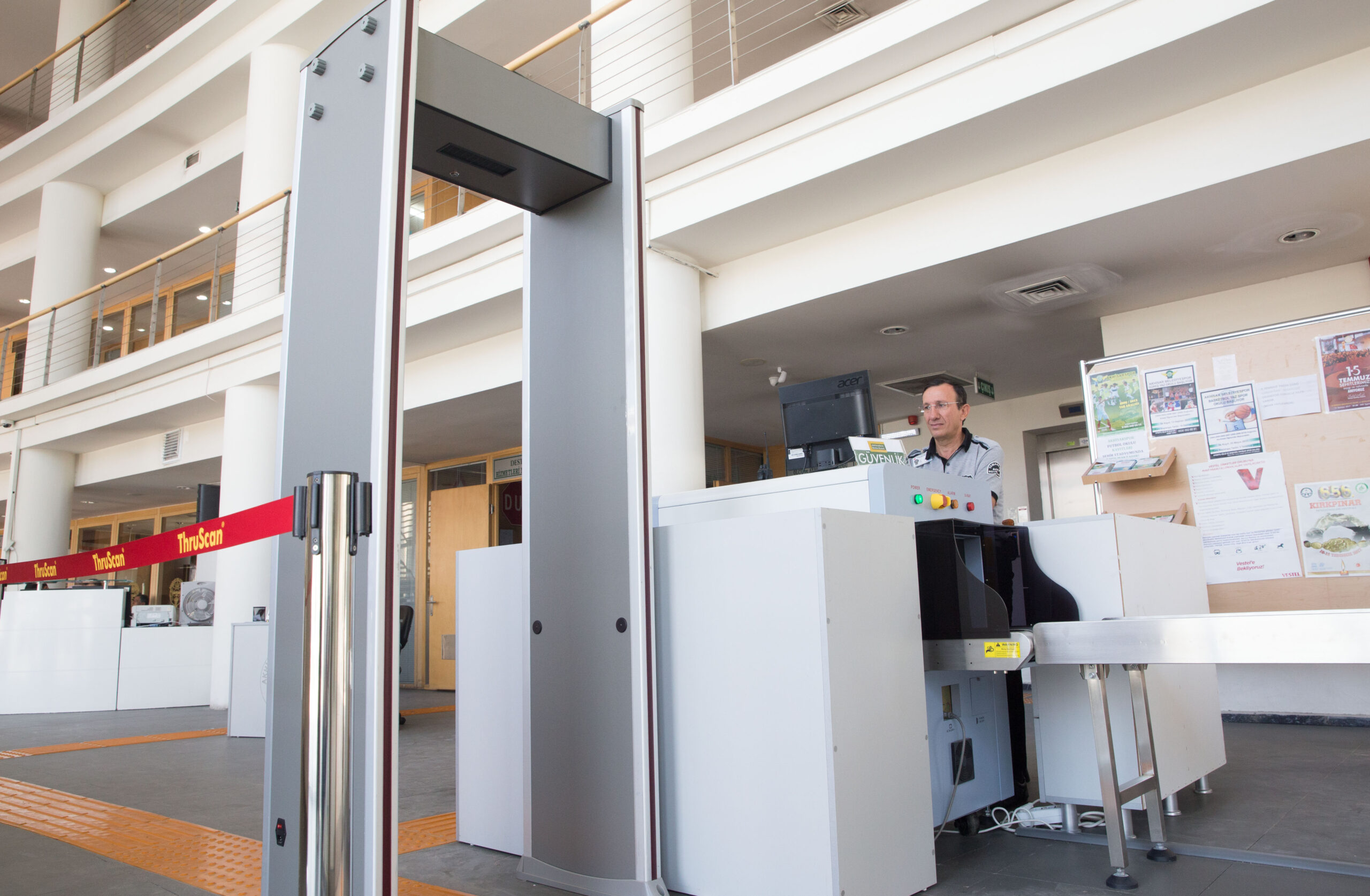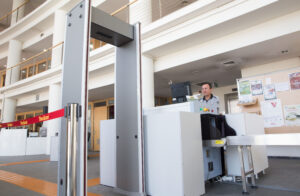Today, security has become one of the top priorities for individuals and institutions. Increasing crime rates, terrorist threats, and elements endangering public safety have heightened the need for more advanced security measures. At this point, security detectors come to the forefront as electronic devices used to detect dangerous and prohibited substances, ensuring safety. Security detectors accelerate security processes, especially in crowded and sensitive areas, helping to prevent potential threats.
With the growing population and urbanization, various auxiliary tools are needed to ensure security and facilitate detection in infrastructure problem solutions. In such cases, detection and search detectors such as water-gas leakage detectors, mineral exploration detectors, and cable-pipe detectors come into play.
Detectors, available in various types, are effectively used in different areas and play a crucial role in enhancing public security. These devices assist security personnel in detecting suspicious objects and individuals more easily, preventing security breaches by identifying potential threats in advance.
Detectors operate based on the principle of material density. With technological advancements, the development of more sensitive and intelligent detectors increases the effectiveness of security measures and expands the usage of detectors.
Types of Detectors and Their Applications
- Walk-Through Metal Detectors (Body Scanners)
Walk-through metal detectors (body scanners) are one of the most commonly used types of detectors for ensuring security at entry and exit points. When individuals pass through these detectors, they detect metal objects on their bodies and alert security personnel. These detectors are particularly crucial in high-traffic areas, expediting security checks and making passage processes safer.
Application Areas:
- Airports and border crossings
- Government buildings and official institutions
- Shopping malls and hotels
- Stadiums and concert venues
- Prisons and military facilities
- University campuses and large event spaces
Walk-through metal detectors help maximize security by detecting weapons and other dangerous objects. They are considered a deterrent measure against terrorist attacks and armed violence.
- Weapon and Knife Detectors
Weapon and knife detectors are specialized devices used in high-security areas. They are designed to detect firearms, knives, and other sharp objects. With their sensors sensitive to metal density, they can instantly identify security threats.
These detectors can detect even small metal objects like paper clips. However, they are programmed to only detect potentially dangerous items, preventing unnecessary alarms and making security screenings more efficient.
Application Areas:
- Banks and financial institutions
- Prisons and courthouse buildings
- Government buildings
- Military facilities
- Educational institutions and campuses
- Large hotels and diplomatic missions
Weapon and knife detectors serve as crucial security measures in high-risk areas, helping security forces quickly identify suspicious individuals. They are also used to enhance security in areas with social events and protests.
- Handheld Metal Detectors
Handheld metal detectors are portable devices that allow security personnel to conduct detailed searches on individuals. They are often used as a complementary tool to walk-through metal detectors. Due to their low cost and portability, they are among the most widely used security devices.
Application Areas:
- Airports and train stations
- Schools and universities
- Concerts, festivals, and sports events
- Nightclubs and entertainment venues
- Private events and receptions
- High-security corporate entrances
Handheld metal detectors help conduct quick and effective security checks in crowded environments. Security personnel use these devices to detect small metal objects on individuals and prevent potential threats. They are also used for detailed scans of carry-on luggage at airports.
- Water and Gas Leak Detectors
Water and gas leak detectors are devices used to detect leaks in pipeline systems. They are particularly essential in large facilities, industrial areas, and homes, preventing serious accidents by detecting water leaks and gas leaks early.
Application Areas:
- Residential buildings and apartments
- Industrial facilities
- Natural gas distribution centers
- Infrastructure maintenance services
These detectors enhance safety by detecting potential hazards such as gas leaks and water damage in advance.
- Mineral Exploration Detectors
Mineral exploration detectors are specialized devices used to detect valuable minerals, metals, and other underground resources. With their sensitive sensors, they facilitate mining activities by identifying underground metal and mineral concentrations.
Application Areas:
- Mining industry
- Archaeological excavations
- Treasure and relic exploration
These detectors contribute to the economy by identifying underground resources and making mining operations more efficient.
- Cable and Pipe Detectors
Cable and pipe detectors are devices used to locate underground cables, pipelines, and other infrastructure networks. They are particularly valuable in construction, helping prevent accidental damage during excavation work.
Application Areas:
- Construction and infrastructure projects
- Electrical and telecommunication services
- Municipal water and gas line maintenance
These detectors assist in locating underground lines, ensuring uninterrupted service and minimizing infrastructure damage.
The Importance of Detectors in Security
Security detectors play a critical role in maintaining safety in crowded areas. These devices simplify the detection of dangerous materials, reduce crime rates, and create a safer environment for people. By minimizing threats that might be overlooked by security personnel, detectors prevent false alarms and make security processes faster and more precise. In large events and public spaces, the use of security detectors helps manage crowds efficiently and prevents potential threats.
Detection devices also facilitate operations for businesses and users by minimizing human errors and detecting hazards beyond human capability, such as gas leaks or hidden minerals.
Since detectors recognize materials based on their density, their sensitivity can be adjusted to prevent false alarms and ensure only targeted substances are detected. This reduces the workload of security personnel and makes operations more efficient. Modern detector systems, integrated with artificial intelligence and image processing technologies, enhance precision and optimize security processes.
Conclusion
Detectors are recognized as one of the most essential components of modern security systems. These devices, used across public and private sectors, continue to improve in accuracy with technological advancements.
Investing in detector technologies is crucial for individuals and institutions to enhance security measures and increase efficiency. Detector systems will remain a critical element in ensuring public safety, preventing crimes, improving search quality, and driving corporate growth both today and in the future.
As AI-powered detectors become more widespread in the future, threat detection will become faster and more accurate, making security processes even more effective.






